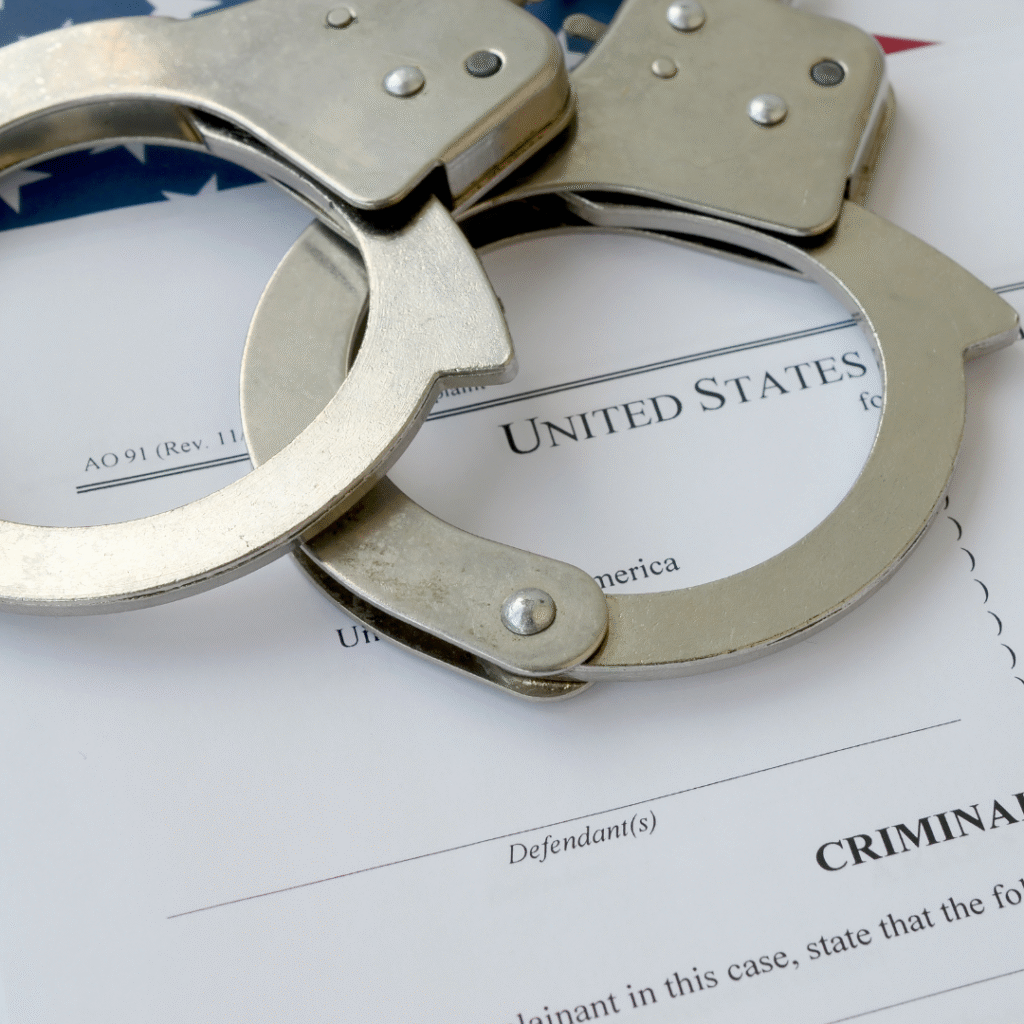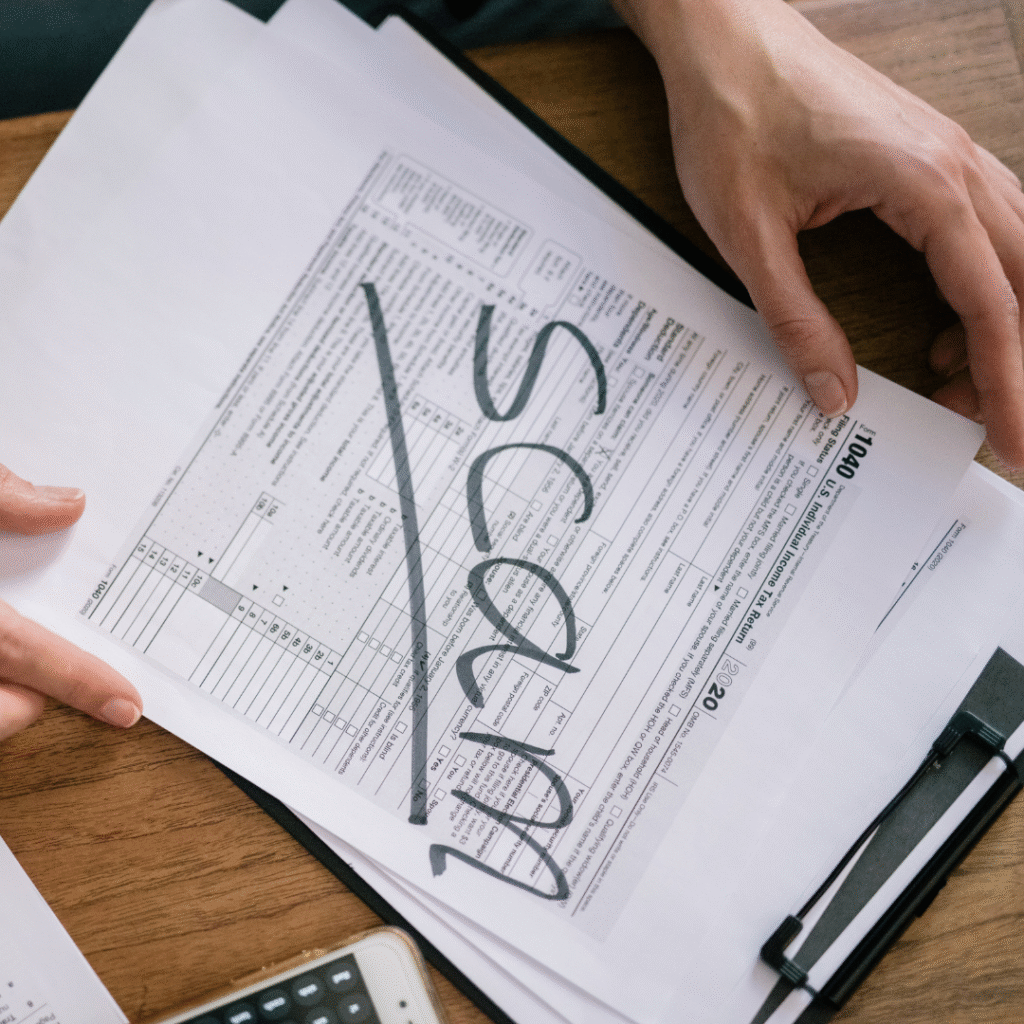Ex-Bank of America Manager Pleads Guilty in Multi-Million Medicare Fraud Scheme 2026

February 18, 2026 | JacobiJournal.com – A former Bank of America branch manager in Brooklyn has pleaded guilty in federal court to charges related to a major Medicare fraud scheme. The case involves laundering millions of dollars derived from fraudulent claims submitted for glucose monitors and urinary catheters. The scheme, coordinated by a transnational criminal organization, exploited gaps in Medicare billing procedures to generate more than $10 billion in false claims. The U.S. Department of Justice reported that the former manager helped open accounts for sham medical supply companies, allowing illicit Medicare payments to flow into the financial system. By moving the funds through multiple accounts and offshore transactions, the manager aided in concealing the illegal activity and facilitating continued fraud operations. How the Medicare Fraud Scheme Operated Federal prosecutors detailed that the manager used their position to set up accounts under fictitious company names to process fraudulent claims. These accounts received Medicare payments for equipment that was either unnecessary or never delivered to patients. The illicit proceeds were then laundered through domestic and international channels to obscure their origin. Investigators noted that this method allowed the criminal organization to exploit weaknesses in banking compliance systems. By converting funds into cryptocurrency or transferring them offshore, the operation minimized detection risk and sustained high-volume fraudulent claims over an extended period. Why Medicare Fraud Cases Like This Matter The case highlights the impact of Medicare fraud on both taxpayers and public health. Fraudulent claims for medical equipment not only divert billions in government funds but also endanger patients when unnecessary devices are provided. Federal authorities have emphasized that targeting money laundering linked to Medicare fraud is critical to maintaining program integrity. By pursuing intermediaries who facilitate fraud, including financial professionals, the DOJ demonstrates the importance of accountability at multiple levels. This enforcement approach deters similar schemes and reinforces compliance requirements for both banks and healthcare providers. What the Conviction Means for Accountability The former branch manager pleaded guilty to conspiracy to commit money laundering, which carries potential federal prison time of up to 20 years. Sentencing will consider the magnitude of the scheme, the amount laundered, and the individual’s role in enabling the fraud. Other participants in the larger criminal network remain under investigation, with law enforcement leveraging cross-border cooperation to identify additional suspects. The case serves as a warning to professionals in finance and healthcare that involvement in Medicare fraud carries severe consequences. Compliance with anti-money laundering protocols and careful monitoring of billing practices are essential to prevent complicity in fraudulent activities. How Fraud Targets Durable Medical Equipment Durable medical equipment such as glucose monitors and urinary catheters is frequently exploited in Medicare fraud schemes because these products are billed in large volumes with limited oversight. Criminal networks submit inflated or fictitious claims under the guise of medical necessity, generating significant illicit revenue. Healthcare fraud experts note that the combination of high-volume billing and weak verification processes creates an environment where fraudulent claims can go undetected. Strengthening internal controls and improving monitoring of Medicare payments are essential measures to reduce vulnerability. Preventing and Reporting Medicare Fraud Financial institutions and healthcare providers can mitigate the risk of Medicare fraud by implementing strict Know-Your-Customer (KYC) procedures and conducting thorough reviews of billing patterns. Detecting anomalies early and reporting suspicious activity to authorities helps prevent large-scale losses. Patients are also encouraged to monitor their Medicare Summary Notices and report discrepancies. Awareness of fraudulent billing practices empowers beneficiaries to protect their accounts and contributes to broader efforts to combat healthcare fraud. For complete details on this case, read the official DOJ press release. FAQs: About the Medicare Fraud What is Medicare fraud? Medicare fraud occurs when individuals or organizations submit false claims or perform billing schemes to obtain payments they are not entitled to under Medicare programs. How did the former Bank of America manager participate? The manager opened bank accounts for fictitious medical supply companies, allowing fraudulent Medicare payments to flow into the financial system before being laundered. Why are glucose monitors and urinary catheters often targeted in fraud? These devices are billed in high volumes and receive limited oversight, making it easier for fraudsters to submit claims for unnecessary or undelivered equipment. What penalties exist for Medicare fraud convictions? Convictions can result in decades of federal prison time, fines, and orders for restitution depending on the scale of the fraud and the specific charges. Stay informed on major healthcare and financial fraud investigations by subscribing to JacobiJournal.com today. 🔎 Read More from JacobiJournal.com:
Kaiser Permanente Affiliates Agree to $556 Million Settlement in Medicare Fraud Case

January 16, 2026 | JacobiJournal.com — Kaiser Permanente affiliates have agreed to pay $556 million to resolve federal allegations tied to improper Medicare billing practices, marking one of the most significant healthcare fraud settlements announced so far in 2026. Federal prosecutors allege that affiliated entities submitted unsupported diagnosis codes to inflate payments under the Medicare Advantage program, raising renewed concerns about systemic billing abuses within large healthcare networks. The Kaiser Permanente False Claims Act settlement centers on accusations that internal systems encouraged physicians to retroactively add diagnoses that were not addressed during patient visits—an approach federal authorities say violated Medicare rules and distorted risk-adjustment payments. How the Alleged Medicare Advantage Scheme Worked Under Medicare Advantage, private insurers receive fixed monthly payments from the federal government, adjusted based on patient health risks. Sicker patients generate higher payments, creating strict documentation requirements designed to prevent abuse. Federal investigators allege that Kaiser affiliates used internal data-mining tools to flag missing diagnosis codes from patients’ medical histories. Physicians were then encouraged—sometimes months after a visit—to add diagnoses through medical record addenda, even when those conditions were not evaluated, treated, or managed during the original appointment. According to the government, this process allowed inflated reimbursement claims while undermining Medicare’s safeguards against fraud. Why Federal Authorities Took Action The Department of Justice emphasized that accuracy in Medicare reporting is essential as more than half of U.S. Medicare beneficiaries are now enrolled in Medicare Advantage plans. Officials stated that knowingly submitting unsupported diagnosis codes shifts billions of dollars in improper costs onto taxpayers. Prosecutors allege the conduct occurred over nearly a decade and persisted despite internal warnings, compliance audits, and physician objections. The government also claims that financial incentives and performance targets were tied to diagnosis submission rates—intensifying scrutiny of corporate pressure inside healthcare organizations. The Kaiser Permanente False Claims Act settlement resolves civil allegations only, with no admission of liability. What This Case Signals for Healthcare Fraud Enforcement This settlement reinforces a broader federal crackdown on healthcare fraud, particularly involving Medicare Advantage risk adjustment practices. Enforcement agencies have increasingly focused on diagnosis inflation, whistleblower complaints, and internal compliance failures at large healthcare providers. The case also highlights the growing role of whistleblowers. Two former Kaiser employees brought forward the allegations under the False Claims Act, entitling them to a reported share of the recovery—underscoring how insiders remain a critical line of defense against healthcare fraud. What Patients, Providers, and Taxpayers Should Know Healthcare fraud cases of this scale affect more than corporate balance sheets. Improper billing undermines trust in Medicare, diverts public funds, and can distort patient care priorities. Federal officials have reiterated that Medicare programs exist to serve patients—not profit-driven billing strategies. For providers nationwide, the message is clear: documentation standards matter, and retroactive chart alterations tied to reimbursement carry serious legal risks. Readers can review the full federal announcement and enforcement details directly from the U.S. Department of Justice. FAQs: About the Kaiser Permanente False Claims Act What is the Kaiser Permanente False Claims Act settlement about? It involves allegations that Kaiser affiliates submitted unsupported diagnosis codes to increase Medicare Advantage payments, violating federal billing rules. Was Kaiser Permanente found legally liable? No. The settlement resolves civil allegations only and includes no formal admission of liability. Why is Medicare Advantage fraud a major enforcement focus? Because Medicare Advantage payments rely heavily on diagnosis data, making the program vulnerable to manipulation and inflated billing. How do whistleblowers factor into healthcare fraud cases? Whistleblowers can file lawsuits on behalf of the government under the False Claims Act and receive a portion of recovered funds. Stay informed on healthcare fraud, Medicare enforcement, and federal investigations. Subscribe to JacobiJournal.com for timely, fact-driven reporting you can trust. 🔎 Read More from JacobiJournal.com:
Mississippi Businessman Admits Guilt in $19M Medicare Fraud Scheme

January 15, 2026 | JacobiJournal.com — A Mississippi entrepreneur recently admitted to orchestrating a Medicare fraud scheme spanning several years through fraudulent claims for durable medical equipment. Investigators say the defendant controlled multiple companies and arranged unnecessary medical equipment orders to generate false billing. The operation focused on high-value items like orthotic braces, using falsified prescriptions and kickbacks to secure compliance from certain medical professionals. Over several years, the scheme accumulated approximately $19 million in fraudulent claims submitted to federal health care programs. Why Federal Authorities Acted Federal prosecutors highlighted the scheme as a significant threat to Medicare’s integrity. By using multiple companies and exploiting medical orders for financial gain, the defendant created systemic vulnerabilities that could encourage similar abuse if left unchecked. Authorities also emphasized that the investigation aligns with ongoing federal initiatives to target health care and Medicare fraud nationwide, deterring abuse of both federal and private insurance programs. What the Guilty Plea Means The businessman pled guilty to conspiracy to commit health care or Medicare fraud. He now faces potential prison time, restitution, and forfeiture of proceeds gained through the scheme. Federal prosecutors will determine sentencing details during an upcoming hearing, emphasizing both punishment and recovery of stolen funds. This plea reinforces the federal government’s commitment to prosecuting individuals who profit from fraudulent medical billing and serves as a warning to those considering similar conduct. How This Case Impacts Health Care Providers Increased Scrutiny: Providers and business owners involved in durable medical equipment billing should anticipate tighter federal audits. The case illustrates that federal authorities remain vigilant in addressing Medicare fraud, particularly in sectors such as durable medical equipment that have historically been vulnerable to abuse. Prosecutors continue to prioritize cases involving organized schemes, shell entities, and the misuse of provider credentials, signaling that enforcement efforts remain aggressive and sustained. For health care providers and business operators, the case serves as a clear warning that regulatory compliance is not optional. Exposure to Medicare fraud investigations can arise from inadequate oversight, improper billing practices, or failures in medical necessity documentation, with violations carrying serious civil and criminal consequences even years after claims are submitted. As federal enforcement intensifies, health care businesses are increasingly expected to adopt proactive compliance strategies. Implementing routine internal audits, staff training on Medicare billing requirements, and clear reporting protocols can help reduce the risk of Medicare fraud violations and demonstrate good-faith efforts to comply with federal law. Read the official DOJ release on the case here for detailed facts and updates. FAQs: About the $19M Health Care Fraud Conspiracy Who pled guilty in this case? A Mississippi businessman who controlled several durable medical equipment companies pleaded guilty to orchestrating a $19 million Medicare fraud scheme. According to federal prosecutors, the defendant used his ownership and control of multiple entities to submit fraudulent claims for medically unnecessary equipment, directing billing operations designed to maximize improper reimbursements from the Medicare program. What methods were used to commit the Medicare fraud? The defendant submitted unnecessary medical equipment claims and used kickbacks to secure prescriptions that beneficiaries did not require. What penalties could the defendant face? The guilty plea exposes him to potential prison time, restitution, and forfeiture of funds obtained through fraudulent activity. Which federal agencies investigated the Medicare fraud scheme? The FBI and the Department of Health and Human Services Office of Inspector General (HHS‑OIG) led the investigation, with prosecution by the U.S. Attorney’s Office and DOJ Criminal Division Fraud Section. Stay informed. Subscribe to JacobiJournal.com for timely coverage of health care fraud and federal enforcement actions. 🔎 Read More from JacobiJournal.com:
How a Michigan Pharmacist and His Brother Pulled Off a $15 Million Health Care Fraud Scheme

December 1, 2025 | JacobiJournal.com — health care and wire fraud. The duo orchestrated a complex scheme targeting Medicare, Medicaid, and private insurers, resulting in over $15 million in losses. The case underscores the persistent threat of health care fraud in pharmacies and the growing scrutiny by federal authorities. What the Fraud Entailed Federal investigators revealed that from 2010 to 2019, Raad Kouza, 59, and his brother Ramis Kouza, 46, submitted fraudulent claims for prescription medications they never dispensed at their Michigan pharmacies. Key points include: As a result, the scheme cost federal and private insurers more than $15 million. Why the Court Issued Prison Sentences In November 2024, a federal jury convicted the brothers of conspiracy to commit health care fraud and wire fraud. At sentencing: Federal prosecutors emphasized that these sentences reflect the severity of deliberate fraud targeting government health programs. How Federal Agencies Investigated the Case The case was investigated by the FBI Detroit Field Office and the HHS Office of Inspector General (OIG). It was prosecuted by the Criminal Division’s Health Care Fraud Strike Force Program, which has charged thousands of defendants nationwide for defrauding federal health programs. The DOJ notes that ongoing oversight by CMS and HHS-OIG aims to prevent similar fraud schemes and hold providers accountable. For readers seeking official details on health care fraud enforcement, visit the DOJ Health Care Fraud Unit. Why This Case Matters Experts say the Kouza case highlights systemic vulnerabilities in pharmacy billing and inventory oversight. It also demonstrates that coordinated federal investigation and prosecution can recover losses and deter future fraudulent activity. Health care providers are encouraged to strengthen internal audits, compliance programs, and reporting mechanisms to reduce exposure to similar legal risks. FAQ: Understanding Health Care Fraud by Pharmacists How do pharmacists commit health care fraud? Fraud can occur through billing for medications not dispensed, overcharging insurers, or falsifying inventory records, as demonstrated in this case. What are the penalties for health care fraud? Convictions can include prison time, restitution, forfeiture, and professional license sanctions, depending on the scale of the scheme. How are pharmacy fraud cases investigated? Federal authorities such as the FBI and HHS-OIG conduct audits, review billing records, and analyze pharmacy operations to detect discrepancies. Can victims recover losses from health care fraud? Yes. Courts often order restitution to recover losses for government programs and insurers impacted by fraudulent schemes. Stay informed on health care fraud and insurance investigations — subscribe to JacobiJournal.com for expert reporting and timely updates. 🔎 Read More from JacobiJournal.com:
Canton Man Pleads Guilty in $4M Medicare DME Fraud Scheme

August 25, 2025 | JacobiJournal.com – A Canton man has pleaded guilty in a $4 million Medicare durable medical equipment (DME) fraud scheme involving medically unnecessary orthotic braces and deceptive telemarketing practices. The scheme is part of a broader federal crackdown under the $14.6 billion nationwide Healthcare Fraud Takedown. Federal prosecutors announced that a Massachusetts-based DME provider admitted to defrauding Medicare by billing for orthotic braces that were either not medically necessary or never provided to patients. The defendant, whose identity was released in court filings, used aggressive telemarketing tactics to obtain patient information and physician orders, often without proper medical evaluation. Between 2018 and 2022, the defendant submitted millions in false claims to Medicare for back, knee, wrist, and shoulder braces, resulting in more than $4 million in fraudulent reimbursements. How the DME Fraud Scheme Worked According to the Department of Justice, the Canton man paid overseas and domestic telemarketing companies to cold-call Medicare beneficiaries, offering free or low-cost medical equipment. Once the patient information was obtained, the scheme funneled bogus or forged prescriptions through complicit medical professionals. These orders were then billed to Medicare, even though many patients never received or needed the braces. The DME company also allegedly disguised kickbacks as “marketing fees” and “consulting payments” to conceal the fraud. Federal Crackdown and Takedown Operation This case is part of the U.S. Department of Justice’s 2025 National Healthcare Fraud Enforcement Action, which has resulted in criminal charges against over 200 individuals nationwide. The coordinated action targeted schemes involving telemedicine, DME fraud, pharmacy billing, and opioid distribution — with total intended losses exceeding $14.6 billion. DOJ Statement on the Guilty Plea “Healthcare fraud drains taxpayer dollars, endangers patients, and undermines trust in our medical system,” said Acting U.S. Attorney Joshua S. Levy for the District of Massachusetts. “This guilty plea sends a strong message to those exploiting Medicare: we will hold you accountable.” Sentencing for the defendant is scheduled for later this year. He faces up to 10 years in federal prison, restitution, and forfeiture of assets acquired through fraud. Workers, Patients & Providers: Know Your Rights Medicare beneficiaries are urged to report suspicious calls, billing statements, or unsolicited medical devices. Healthcare providers should maintain strict compliance programs and verify telehealth claims carefully. For full details on this case and other healthcare fraud enforcement actions, visit the U.S. Department of Justice – District of Massachusetts official press release section. FAQs: Canton Man Pleads Guilty Who is the Canton man that pleaded guilty in the Medicare DME fraud case? The man who pleaded guilty was the owner of a DME company that used telemarketing and false medical claims to bill Medicare for unneeded orthotic devices. What was the total amount involved in the DME fraud scheme? The man pleaded guilty to defrauding Medicare of over $4 million through false claims for unnecessary medical equipment. How does this DME fraud case connect to the nationwide healthcare fraud takedown? This DME fraud case is part of the broader $14.6 billion healthcare fraud takedown, which involved hundreds of defendants across the United States. What penalties could he face after pleading guilty? He could face up to 10 years in federal prison, restitution payments, and forfeiture of any assets obtained through the $4 million fraud. Stay ahead of fraud cases, legal updates, and compliance alerts. Subscribe to JacobiJournal.com today for trusted reporting on white-collar crime, healthcare enforcement, and regulatory actions. 🔎 Read More from JacobiJournal.com:
DOJ-HHS False Claims Act Working Group Intensifies Enforcement After $14.6B Takedown

August 11, 2025 | JacobiJournal.com – Following the historic $14.6 billion healthcare fraud takedown, federal agencies are doubling down on enforcement efforts under the reactivated False Claims Act Working Group, signaling an aggressive new era of oversight targeting fraudulent billing across the healthcare industry. The interagency team—led by the Department of Justice (DOJ) and the Department of Health and Human Services (HHS)—has not only revived the Working Group but is reportedly expanding its reach into newly flagged sectors, including behavioral health, teletherapy, and rural clinic billing models. New Investigations Already Underway According to DOJ insiders, a second wave of investigations is now underway, focusing on fraudulent claims involving telehealth services, durable medical equipment (DME), and unnecessary genetic testing. These schemes often prey on vulnerable populations and exploit regulatory gaps that emerged during the pandemic. While the initial healthcare fraud takedown charged 324 defendants—including medical professionals, clinic operators, and telehealth company executives—officials warn that this was just the “first phase” of a longer-term crackdown. “False Claims Act enforcement is now a frontline priority,” stated an official familiar with the task force. “We’re looking at everything from upcoded services to kickback arrangements involving marketing firms and call centers.” Enhanced FCA Enforcement Tools in Play Key to this effort is the strategic use of the False Claims Act (FCA), which allows the government—and whistleblowers—to bring civil actions against entities defrauding federal healthcare programs. By leveraging FCA provisions, the DOJ recovered more than $2.7 billion in healthcare fraud settlements in 2024 alone. As part of the intensified enforcement strategy, the DOJ-HHS Working Group is coordinating with: These collaborations are supported by enhanced data analytics tools that allow agents to identify anomalous billing patterns across Medicare, Medicaid, and TRICARE in near real-time. This integrated approach strengthens the government’s ability to execute large-scale healthcare fraud takedown operations, ensuring that fraudulent providers are identified and prosecuted efficiently. Industry Bracing for Fallout Legal analysts say the revived working group has put the industry on alert. “With this level of federal scrutiny, even compliant providers need to reassess their billing practices, referral relationships, and marketing vendors,” said a healthcare fraud defense attorney. “The government isn’t just targeting bad actors—they’re examining entire care delivery ecosystems.” In the wake of the takedown, several health systems and DME suppliers have launched internal audits, fearing that even minor regulatory violations could result in federal scrutiny or whistleblower claims. Compliance Tips for Providers Providers and healthcare businesses should take the following immediate actions to mitigate exposure: Experts caution that in today’s climate, ignorance of the law offers no defense. What’s Next? More arrests and settlements are expected in the coming months as the DOJ and HHS continue reviewing data and evidence collected during the healthcare fraud takedown operation. Industry stakeholders should anticipate ongoing False Claims Act enforcement waves well into 2026. For full case summaries and press releases, visit the DOJ’s official newsroom here. FAQs: DOJ False Claims Act Enforcement Update What is the False Claims Act Working Group? The DOJ-HHS False Claims Act Working Group is a task force dedicated to investigating and prosecuting healthcare fraud involving federal programs like Medicare and Medicaid. Why is FCA enforcement increasing now? Federal agencies are responding to widespread abuse of healthcare programs—especially telehealth and DME schemes—uncovered during the $14.6 billion fraud bust. The revived working group enables cross-agency coordination for faster and broader enforcement. How can healthcare providers avoid False Claims Act liability? Healthcare providers must ensure accurate billing, avoid illegal referral arrangements, and maintain documented compliance programs. Regular audits and staff training are essential. Subscribe to JacobiJournal.com to receive weekly enforcement updates, whistleblower case alerts, and FCA litigation insights tailored for legal, compliance, and health sector professionals. 🔎 Read More from JacobiJournal.com:
National Health Care Fraud Data Fusion Center Boosts DOJ-HHS Enforcement

July 25, 2025 | JacobiJournal.com – The National Health Care Fraud Data Fusion Center, jointly operated by the Department of Justice (DOJ) and Department of Health and Human Services (HHS), is rapidly transforming how federal authorities investigate and prosecute healthcare fraud. While first announced in late June, recent enforcement actions confirm the center’s pivotal role in accelerating the detection of fraudulent activity across Medicare, Medicaid, and telehealth platforms. How the Data Fusion Center Strengthens Fraud Enforcement The Data Fusion Center integrates real-time data analytics from multiple government agencies, enhancing the False Claims Act Working Group’s ability to identify anomalies, track financial flows, and connect disparate fraud schemes. This approach allows authorities to proactively flag high-risk providers and patterns before significant losses occur. The center’s work has already supported the 2025 National Health Care Fraud Takedown, which charged 324 defendants in schemes totaling $14.6 billion, including $1.17 billion in telehealth and genetic testing fraud. These figures represent the largest coordinated enforcement effort in healthcare fraud to date, demonstrating the fusion center’s growing impact. Impact on Telehealth Compliance and Analytics Telehealth providers, laboratories, and billing entities face heightened scrutiny as the fusion center applies advanced data analytics to monitor compliance. Organizations involved in telemedicine are particularly vulnerable, with the DOJ leveraging the center’s insights to trace billing irregularities linked to genetic testing scams and telehealth consults. This proactive enforcement model marks a shift from reactive investigations to continuous surveillance of healthcare transactions. As a result, companies in the healthcare sector are advised to strengthen their internal compliance protocols and regularly audit billing practices to avoid becoming targets of federal investigations. For more information on how healthcare fraud is tracked and prosecuted, visit the DOJ Health Care Fraud Unit resource page. What’s Next for the National Health Care Fraud Data Fusion Center Officials from both the DOJ and HHS suggest that the fusion center will continue to evolve, incorporating artificial intelligence and cross-border data sharing to combat increasingly sophisticated fraud schemes. Upcoming enforcement waves are expected to target providers exploiting risk adjustment models, prescription fraud, and unregulated telehealth services. With billions at stake, the center’s data-driven strategy is poised to redefine federal fraud enforcement, holding providers and corporations to higher standards of accountability. FAQ: National Health Care Fraud Data Fusion Center What is the National Health Care Fraud Data Fusion Center? The National Health Care Fraud Data Fusion Center is a joint initiative by the DOJ and HHS that uses real-time data analytics to detect and prevent healthcare fraud across Medicare, Medicaid, and telehealth services. How does the fusion center impact telehealth providers? Telehealth providers are under increased scrutiny as the fusion center analyzes billing data to identify fraudulent or non-compliant practices, especially in genetic testing and telehealth consultations. What were the results of the 2025 healthcare fraud takedown? The 2025 enforcement action charged 324 defendants with healthcare fraud schemes totaling $14.6 billion, with a significant portion linked to telehealth and genetic testing scams. Which schemes were uncovered by the fusion center? Authorities identified transnational networks billings exceeding $10.6 billion in DME fraud (Operation Gold Rush), telehealth/genetic testing fraud, opioid-related kickbacks, and false hospice claims. Where can I report suspected healthcare fraud? Reports of healthcare fraud can be submitted to the HHS Office of Inspector General (OIG). Stay informed on healthcare fraud enforcement and telehealth compliance developments. Subscribe to JacobiJournal.com for the latest insights on regulatory actions and industry risks. 🔎 Read More from JacobiJournal.com:
Second Round of Guilty Pleas in California $16M Hospice Billing Scheme

July 11, 2025 | JacobiJournal.com – $16M hospice fraud led to guilty pleas from two California residents in a widening Medicare scam, federal prosecutors announced. The scheme involved fraudulent billing for hospice services and laundering millions through shell companies, reflecting the DOJ’s continued focus on prosecuting healthcare crime at all level How the Fraud Worked According to court filings, the defendants conspired to submit false claims to Medicare for hospice services that were either medically unnecessary or never delivered. Patient information was manipulated, and documentation was falsified to create the appearance of legitimate end-of-life care. In reality, many of the patients did not qualify for hospice, and some were unaware they had been enrolled at all. This conduct was a key element of the $16M hospice fraud scheme now under federal prosecution. By exploiting gaps in Medicare’s hospice eligibility verification process, the conspirators were able to generate millions in unlawful reimbursements. The $16M hospice fraud case also highlights how vulnerable patient records can be misused, particularly when oversight mechanisms fail. Authorities have emphasized that such manipulation not only defrauds the system but may impact patient care by interfering with their medical histories and future eligibility for benefits. Larger Investigation Unfolds These pleas are part of a wider investigation involving multiple co-defendants across California and other states. The Department of Justice confirmed that the defendants also took part in laundering the proceeds through shell companies and fraudulent financial transactions. Federal prosecutors emphasized that each guilty plea strengthens their case against the broader network behind the scam. Authorities are continuing efforts to recover misused funds and pursue remaining individuals tied to the fraud. The $16M hospice fraud scheme has drawn national attention due to its scale and coordination. Investigators are now analyzing financial records, communications, and business filings to trace the full extent of the operation. Law enforcement sources suggest the fraudulent activity may have extended over several years and involved actors in the healthcare, finance, and legal sectors. With more defendants likely to be charged, the DOJ has framed the case as a critical example of its broader initiative to root out large-scale healthcare fraud that endangers patients and drains federal resources. A Signal to the Industry The case underscores how financial crime within healthcare continues to evolve—and how regulators are sharpening their focus on compliance enforcement. With sentencing pending, both defendants face potential prison time and restitution orders. Federal agencies say more charges are possible as the investigation unfolds. The $16M hospice fraud case serves as a stark reminder to providers and organizations operating in the healthcare sector that federal oversight is intensifying. As digital records, billing platforms, and reimbursement systems become more sophisticated, so do attempts to exploit them. This prosecution demonstrates that law enforcement agencies are prepared to dismantle entire networks, not just penalize individuals, when fraud is detected. For professionals working in compliance, billing, and provider administration, the case highlights the importance of strong internal auditing, ethical oversight, and transparent documentation. As the healthcare industry continues to shift toward value-based and end-of-life care models, the government is making clear that any abuse of these systems will be met with aggressive legal action. To read more information about this case, visit Justice.gov. FAQs: About the $16M Hospice Fraud Guilty Pleas What were the defendants accused of in the $16 million hospice fraud scheme? The defendants admitted to submitting false claims to Medicare for hospice services that were either medically unnecessary or never provided. They also engaged in money laundering to conceal the proceeds of the fraud. How did the fraud scheme exploit Medicare and patients? The scheme used falsified documentation and enrolled patients—many of whom did not qualify for hospice—without proper medical justification. Some patients were unaware they were listed as receiving end-of-life care, which could affect their future access to legitimate medical services. What are the potential penalties for those who plead guilty? Each defendant faces a potential federal prison sentence, restitution orders, and fines. Why is the $16M hospice fraud case significant to Medicare oversight? This case exposes vulnerabilities in Medicare’s hospice billing system and underscores the importance of regulatory oversight. The Department of Justice is using this $16M hospice fraud as an example to signal stronger enforcement and deter future abuse of federal healthcare programs. Get the latest updates on healthcare fraud — subscribe to JacobiJournal.com for in-depth reporting delivered directly to your inbox. 🔎 Read More from JacobiJournal.com:
OJ Indicts 49 in $1.17 Billion Telehealth Genetic Testing Fraud

July 2, 2025 | JacobiJournal.com – The Department of Justice (DOJ) has announced the indictment of 49 individuals connected to a massive telehealth genetic testing fraud scheme that defrauded Medicare of approximately $1.17 billion. This national enforcement action marks one of the most significant takedowns targeting the intersection of telemedicine and genetic testing abuse. National Crackdown on Telemedicine Scams Federal prosecutors revealed that defendants operated fraudulent telehealth consultations to justify unnecessary genetic testing and medical equipment. These fake medical services led to thousands of false Medicare claims for tests that patients did not need, did not request, or never received. Investigators discovered that telemedicine companies collaborated with laboratories and marketing firms to orchestrate the scam, exploiting both patients and Medicare’s billing systems. The DOJ emphasized that while telehealth offers legitimate benefits, fraudsters have weaponized the convenience of virtual care to conceal large-scale fraud. Financial and Ethical Impact of Telehealth Genetic Testing Fraud Authorities stated that this scheme drained over a billion dollars from Medicare, ultimately burdening taxpayers and undermining trust in remote healthcare services. Fraudulent genetic testing not only results in financial losses but also exposes patients to unnecessary medical procedures and the risk of compromised personal health data. DOJ Reinforces Commitment to Healthcare Integrity The DOJ reiterated its commitment to pursuing healthcare fraud aggressively, especially as telemedicine remains a growing field. Officials encouraged healthcare providers to strengthen compliance efforts and urged the public to remain vigilant against suspicious medical services. For additional information on how to recognize and report Medicare fraud, visit the Centers for Medicare & Medicaid Services (CMS) official resource page. What’s Next for Enforcement The DOJ hinted that further investigations are underway, with more arrests expected in related telehealth and genetic testing schemes. Federal prosecutors have emphasized that this is only the beginning of a larger nationwide effort to dismantle complex fraud networks exploiting Medicare through telemedicine. As telehealth genetic testing fraud continues to evolve, authorities are enhancing interagency collaboration between the DOJ, FBI, and the Department of Health and Human Services to track and intercept these fraudulent operations. Additionally, the DOJ plans to leverage advanced data analytics and whistleblower tips to identify hidden connections between healthcare providers, laboratories, and telehealth platforms that may be facilitating or concealing fraud. This July enforcement wave reflects a broader strategy to safeguard public healthcare funds, strengthen Medicare integrity, and restore confidence in digital health services by ensuring that telehealth remains a legitimate and safe avenue for patient care. FAQ: Understanding Telehealth Genetic Testing Fraud What is telehealth genetic testing fraud? Telehealth genetic testing fraud involves scammers using virtual healthcare platforms to order unnecessary or fake genetic tests. Fraudsters often collaborate with labs and marketing firms to bill Medicare for services that were never needed or provided. How can patients avoid falling victim to telehealth genetic testing fraud? Patients should consult their primary care physician before agreeing to any genetic tests offered through telehealth. They should also verify that the provider is legitimate and be cautious of unsolicited offers for medical testing. How do authorities detect and investigate telehealth genetic testing fraud? Authorities like the DOJ and CMS use data analytics to identify abnormal billing patterns and networks of providers submitting excessive claims for genetic testing. Investigations often trace financial transactions to uncover fraudulent schemes. Where can I report suspected telehealth genetic testing fraud? You can report suspected telehealth genetic testing fraud directly to Medicare here or contact the Office of Inspector General (OIG) fraud hotline. Stay informed on telehealth genetic testing fraud cases and healthcare enforcement actions. Subscribe to JacobiJournal.com for weekly updates on fraud prosecutions, regulatory crackdowns, and compliance news. 🔎 Read More from JacobiJournal.com:
Genetic Testing Scams: The New Face of Medicare Fraud

June 18, 2025 | JacobiJournal.com – Genetic testing scams are quickly becoming a major form of Medicare fraud, targeting seniors with misleading offers and unauthorized billing schemes. These scams usually begin with a cold call, a booth at a senior center, or even a misleading TV ad claiming to offer free DNA testing for cancer or other conditions. Once a patient provides their Medicare number, scammers bill the government for unnecessary or completely fake tests—costing taxpayers millions. Although these scams promise insight into personal health, they rarely provide any medical value. Instead, the goal is to exploit Medicare’s coverage of genetic testing. A Growing Threat to Seniors and Taxpayers The appeal of genetic insights makes this scam effective, particularly among vulnerable senior populations who are more likely to trust medical professionals or health-related offers. Fraudsters often employ aggressive marketing tactics and fake affiliations with Medicare or healthcare providers to establish trust and gain access to sensitive private information. Furthermore, these schemes often involve third-party labs and marketers who split profits from fraudulent claims, making detection even more challenging. This multi-layered setup allows scam operations to avoid early scrutiny while maximizing profit. Protecting the Public and Medicare Government agencies, including the Office of Inspector General and CMS, have issued warnings and are actively investigating such schemes. Still, public awareness is key. Patients should never share Medicare information with unfamiliar sources or agree to free tests without consulting their doctor. Ultimately, understanding how genetic testing scams work is the first step in stopping them. Clear regulations, routine audits, and public education will be crucial in protecting both patient trust and public funds. For more official information on Medicare-related scams, visit the Office of Inspector General (OIG) fraud alerts. FAQs: About Genetic Testing Scams How do genetic testing scams target Medicare patients? Genetic testing scams often begin with unsolicited calls, senior center booths, or deceptive ads offering free DNA tests. Scammers collect Medicare numbers to bill for unnecessary or fake tests, exploiting both seniors and the Medicare system. What risks do seniors face from genetic testing scams? Victims of genetic testing scams risk identity theft, compromised medical data, and contributing to Medicare fraud unknowingly. These scams often leave patients without any valuable health insights despite claims. How can Medicare beneficiaries avoid genetic testing scams? To avoid genetic testing scams, seniors should only undergo genetic testing recommended by their personal doctor. Medicare numbers should never be shared with unsolicited callers, marketers, or unfamiliar medical providers. Stay protected against healthcare fraud. Subscribe to JacobiJournal.com for ongoing updates on Medicare scams, fraud enforcement, and patient safety insights. 🔎 Read More from JacobiJournal.com: